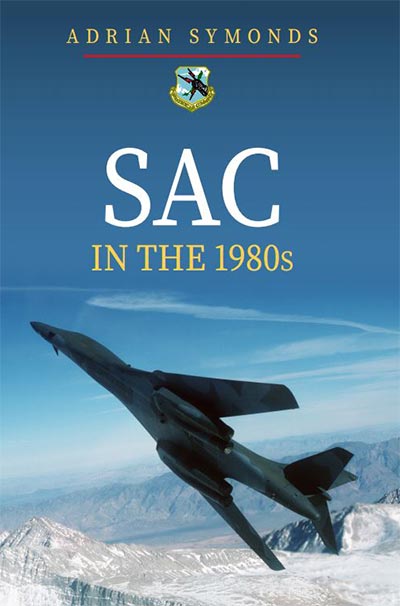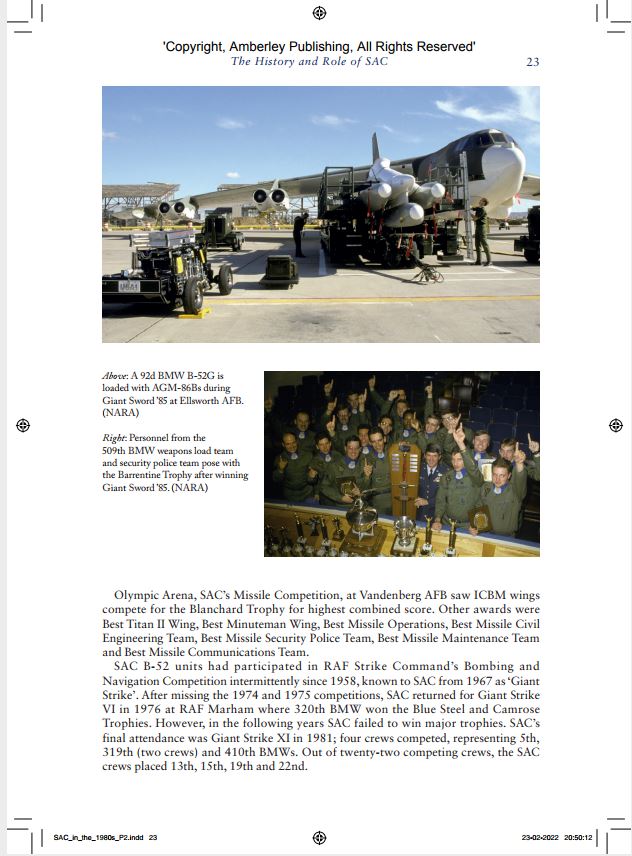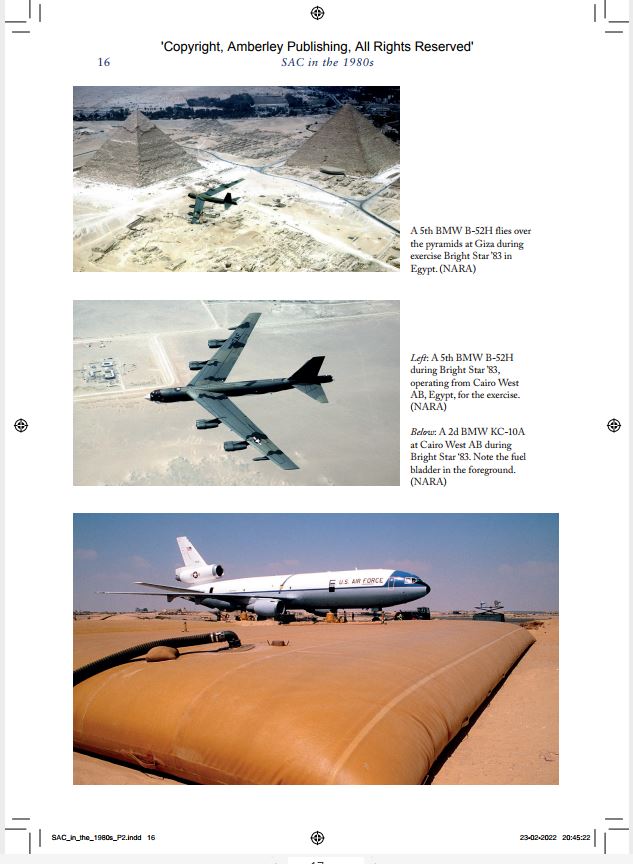


Author: Adrian
Symonds
Publisher: Amberley Publishing
ISBN: 978 1 4456 9870 0
Published 15-07-2022
96 pages
Price: around 24,00 euro in Nederland, GBP 14,39 England (paperback).
'Fighter pilots make movies, bomber pilots make history' - or so the bomber
pilots say, anyway. Strategic Air Command held a constant nuclear-armed vigil,
ready to launch nuclear war at a moment's notice, twenty-four hours a day. SAC
was responsible for two of the three components of the Nuclear Triad - manned
strategic bombers and land-based intercontinental ballistic missiles (ICBMs) -
alongside the Navy's SLBMs. Also responsible for the USAF's strategic
reconnaissance aircraft, SAC maintained a large fleet of tankers to support its
bombers and spy planes. After a drawdown of strength in the aftermath of the
Vietnam War, SAC rebuilt its strength throughout the 1980s as part of a wider revitalization
of the US armed forces under President Reagan. New advanced bombers, tankers
and ICBMs joined the fleet with the promise of new stealth aircraft under
development.
The seventies and eighties
were my most active years with regard to the hobby, the cold war, service time
and a lot of traveling and spotting. I still remember the impressive B1 that I
saw in America still in development in a large hangar. At Mildenhall the
take-offs of U-2 aircraft and the tankers. At Farnborough/Mildenhall the SR-71
to mention just a few.
Just to find out I searched
for Strategic Air Command in my personal library and found about 5 books more
or less on this subject. A Google search also yields results, so this certainly
is not he only book on the Strategic Air Command. The advantage, however, for
the author is that many sources have become freely available during the years
and not marked “secret”. 96 pages is certainly not enough to
go cover the SAC in all depth, but in 3
chapters:
- The History and Role of SAC
- SAC Structure
- End of an Era
the author deals with the
story of the Strategic Air Command so that it becomes clear to every reader how
this command came about, functioned, with all the units involved, in the cold
war and was decommissioned . Two annexes take care, in detail, with the
structure in 1980 and 1989. The book has a lot of color photographs from the
period of the Cold War, mainly from the National Archives and Records
Administration (NARA), which makes a number of them, somewhat more well known.
The focus of the book is on the text in combination with explanatory
photographs.
Conclusion
With SAC in the 1980s you will
possess a great book with information on
the Strategic Air Command without having to consult a large number of other
books, where the author certainly also has an eye for interesting and important
details. It touches on the period of the cold war with the nuclear threat and
attack. Certainly because many older books on this subject are no longer
(easily) available, this edition is actually a must for those interested in
this subject and period.
At the time of writing, the book is not yet published, release date is July 15.
The book is available as eBook and paperback
Adrian Symonds has been fascinated by military history, especially military
aviation, since childhood. No doubt, frequent low-level RAF and USAF jets
flying over his native Worcestershire during his youth planted the seeds of his
ongoing passion for the subject. He has extensively studied the histories of
the world’s air forces.
Other books by
this author are:
ANG in the 1980s
USAFE in the 1980s
TAC in the 1980s
Thanks to Amberley Publishing and Adrian Symonds for this review copy.
